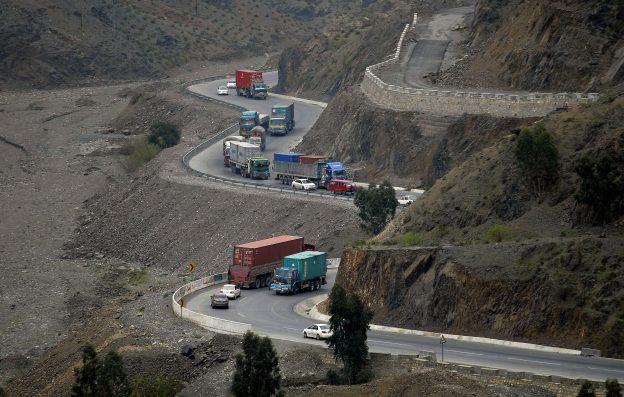The federal government and the World Bank have signed a loan agreement worth $406.6 million for Khyber Pass Economic Corridor (KPEC) Project.
In a separate move, Islamabad inked a deal with Germany for financing Hydropower and Renewable Energy phase-II.
Dr. Syed Pervaiz Abbas, Secretary Economic Affairs Division and the country director of the bank Patchamuthu Illangovan signed the document.
KPEC project is a 48Km long 4-Lane dual carriageway from Peshawar to Torkham.
This project will promote economic development and uplift areas adjoining expressway falling in Khyber Pakhtunkhwa Province.
The Project envisages developing clusters of economic activity including economic zones and expressways.
Connecting transport infrastructure and economic zones are expected to provide a strong foundation for private businesses and investments in these zones.
The expressway between Peshawar and Kabul through the Khyber Pass represents a section of Corridors 5 and 6 of the Central Asia Regional Economic Cooperation (CAREC).
Corridor 5, which runs through Pakistan, has the potential to provide the shortest link between landlocked Afghanistan, Tajikistan, Uzbekistan and the Arabian Sea.
Corridor 6 provides access to Europe, the Middle East and Russia. The KPEC will finance the Peshawar-Torkham expressway portion of Corridor-5.
The Peshawar-Torkham expressway will reduce transit time and cost of regional and international trade transiting the Khyber Pass and extend till Karachi-Lahore-Islamabad-Peshawar Trans-Pakistan Expressway System. It will form an integral part of the planned Peshawar-Kabul-Dushanbe Motorway. The improved regional connectivity through this corridor will not only facilitate the commercial traffic and expand economic activities between Pakistan and Afghanistan but also promote private sector development along the corridor. It is expected to generate up to 100,000 new jobs in Khyber Pakhtunkhwa.
The same day, Dr. Syed Pervaiz Abbas signed an agreement with the German Development Bank (KfW) for Hydropower Renewable Energy-II. Mr. Wolfgang Moellers, the country director represented the bank.
Under the Agreement, KfW will provide grant assistance worth €12.5 Million to the government of Gilgit-Baltistan and the Agha Khan Rural Support Program.
The project has two components. One, the Hydropower component that will be implemented by the Water & Power Department, GB and, two, the Biodiversity component which will be implemented by the Agha Khan Rural Support Program.
The implementation of HRE-II in GB will contribute to the provision of electricity for the population of Hunza and Nagar through the utilization of its abundant water resources, which will improve living standards and livelihoods of the local population and the region
Over US$406 m secured for Khyber Pass Economic Corridor Project
on 27/01/2020








